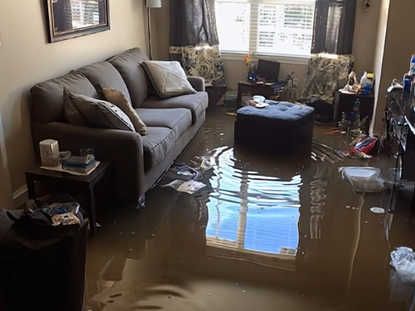When my husband Nick and I finally bought our cozy fixer-upper, it was the result of nearly a decade of sacrifices and hard work.
We poured our weekends into transforming the house, from repainting walls to replacing old pipes. A few weeks after moving in, we invited Nick’s sister Nora, her husband Rick, and their son Tommy to visit.
Everything was going well until we returned from a family outing to find our new home flooded. Water had spread through the living room, damaging the floors and walls we had carefully restored. A plumber discovered Play-Doh stuffed into the guest bathroom toilet, causing the overflow.
When we asked Tommy about it, he denied everything, and his parents refused to take responsibility, suggesting it was a “plumbing issue.” We were left with thousands of dollars in damage. Days later, our daughter Alice quietly shared that Tommy had bragged at school about causing the flood—and even said his mother encouraged it as a “joke.” Heartbroken but calm, I asked Alice to record any future conversations if she felt safe doing so. A few days later, she came home with clear audio of Tommy admitting everything.
Instead of arguing, I wrote a clear letter to Nora explaining the situation and asking for payment to cover the damages. When she refused and became hostile, I turned to the legal system. In court, we presented the plumber’s report, photos of the damage, receipts, and the recording. Tommy eventually told the truth under the judge’s questioning. The court ruled in our favor and ordered Nora and Rick to pay the full cost of the damage.
It took time to repair the house, but eventually, it looked like home again. More importantly, this experience taught me that standing firm and relying on facts—not anger—can bring justice. I didn’t seek revenge; I wanted honesty and respect for the home we worked so hard to build. And in the end, the truth spoke for itself.
